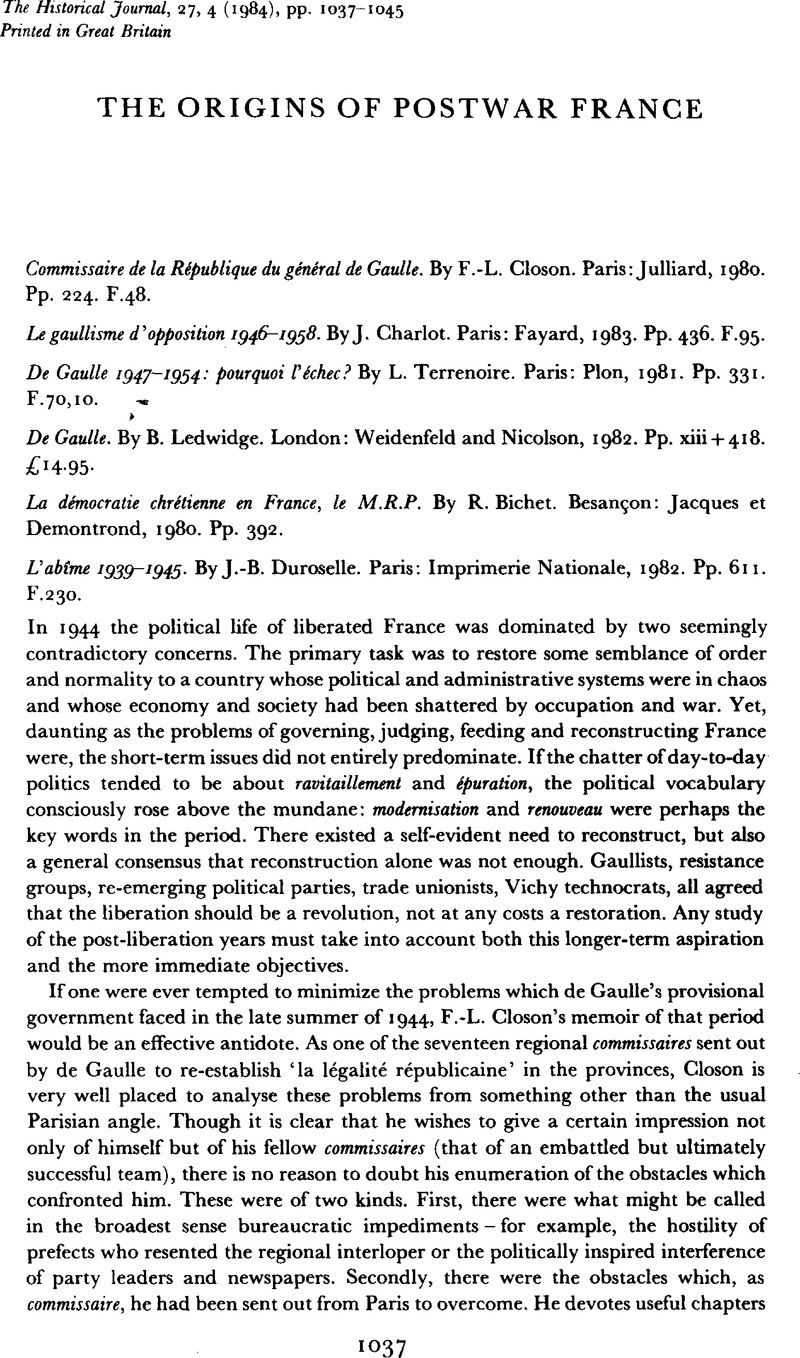No CrossRef data available.
Published online by Cambridge University Press: 11 February 2009

1 In addition to the two works which Closon cites (Foulon, C.-L., Le pouvoir en province à la libèration (Paris, 1975))Google Scholar and Dejonghe, E. and Laurent, D., Libération du Nord el du Pas-de-Calais (Paris, 1974)Google Scholar there is a good thesis on the subject of the commissaires: Kramer, S. P., ‘The provisional republic, the collapse of the French resistance front and the origins of post-war politics: 1944–1946’ (unpublished Princeton Ph.D. dissertation, 1971)Google Scholar.
2 Closon's, final chapter is an abbreviated version of his book La région, cadre d'un gouvernement moderne (Paris, 1947)Google Scholar. See also Debré, , La mort de I'état républicain (Paris, 1947), especially pp. 59fFGoogle Scholar.
3 Discours et messages, 1940–1946 (Paris, 1946), p. 570Google Scholar.
4 Capitalism and the state in modern France (Cambridge, 1981)Google Scholar.
5 Journal offidel. Débats de I'Assemblée nationale constituante, pp. 731–2.
6 La France sera la France (Paris, 1951), p. 56Google Scholar.
7 Terrenoire, , De Gaulle, p. 178Google Scholar.
8 Terrenoire, , De Gaulle, p. 34Google Scholar.
9 De Gaulle made the same calculation after the event. Cf.Discours et messages: Dans l'attente, 1946–1958 (Paris, 1970), p. 513Google Scholar.
10 It is interesting that when the idea of a broad parti travailliste was raised by the future founders of the MRP, de Gaulle's name was not even mentioned. See L'Aube, 17 Nov. 1944, 22 Nov. 1944.
11 Charlot (pp. 85–6) throws interesting light on this question. Quoting opinion polls of the RPF period, he suggests that the most popular planks in the Gaullist platform were its foreign policy, social policy and anti-communism, while a majority disapproved of ‘la lutte contre les partis’ and ‘la création d'un État fort avec pouvoirs étendus pour le général de Gaulle’.
12 Corbel, Pierre, Le parlement français et la planification (Paris, 1969)Google Scholar.
13 Capitalism and the state, p. 280.